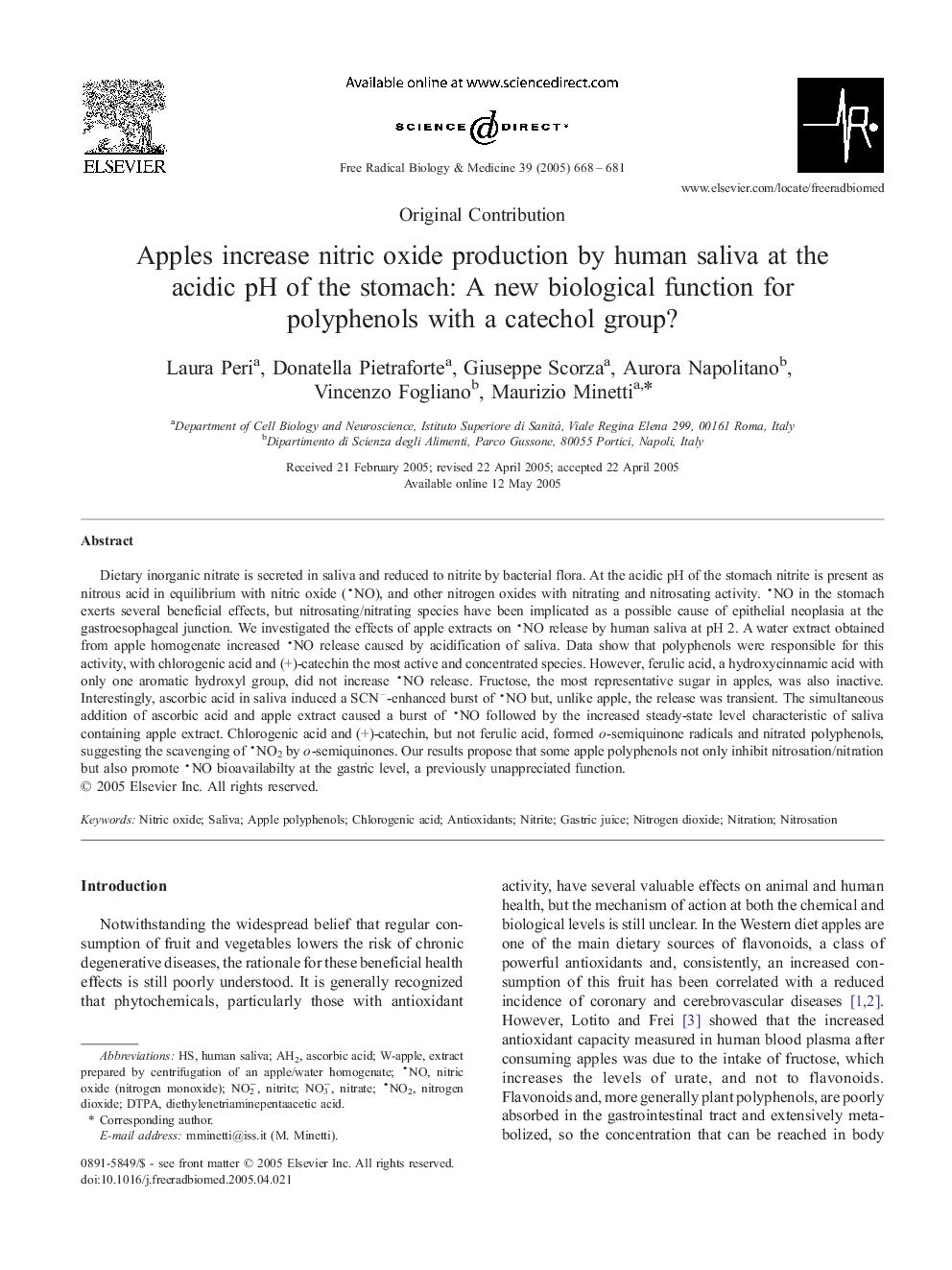| Article ID | Journal | Published Year | Pages | File Type |
|---|---|---|---|---|
| 10739276 | Free Radical Biology and Medicine | 2005 | 14 Pages |
Abstract
Dietary inorganic nitrate is secreted in saliva and reduced to nitrite by bacterial flora. At the acidic pH of the stomach nitrite is present as nitrous acid in equilibrium with nitric oxide (NO), and other nitrogen oxides with nitrating and nitrosating activity. NO in the stomach exerts several beneficial effects, but nitrosating/nitrating species have been implicated as a possible cause of epithelial neoplasia at the gastroesophageal junction. We investigated the effects of apple extracts on NO release by human saliva at pH 2. A water extract obtained from apple homogenate increased NO release caused by acidification of saliva. Data show that polyphenols were responsible for this activity, with chlorogenic acid and (+)-catechin the most active and concentrated species. However, ferulic acid, a hydroxycinnamic acid with only one aromatic hydroxyl group, did not increase NO release. Fructose, the most representative sugar in apples, was also inactive. Interestingly, ascorbic acid in saliva induced a SCN--enhanced burst of NO but, unlike apple, the release was transient. The simultaneous addition of ascorbic acid and apple extract caused a burst of NO followed by the increased steady-state level characteristic of saliva containing apple extract. Chlorogenic acid and (+)-catechin, but not ferulic acid, formed o-semiquinone radicals and nitrated polyphenols, suggesting the scavenging of NO2 by o-semiquinones. Our results propose that some apple polyphenols not only inhibit nitrosation/nitration but also promote NO bioavailabilty at the gastric level, a previously unappreciated function.
Keywords
Related Topics
Life Sciences
Biochemistry, Genetics and Molecular Biology
Ageing
Authors
Laura Peri, Donatella Pietraforte, Giuseppe Scorza, Aurora Napolitano, Vincenzo Fogliano, Maurizio Minetti,
